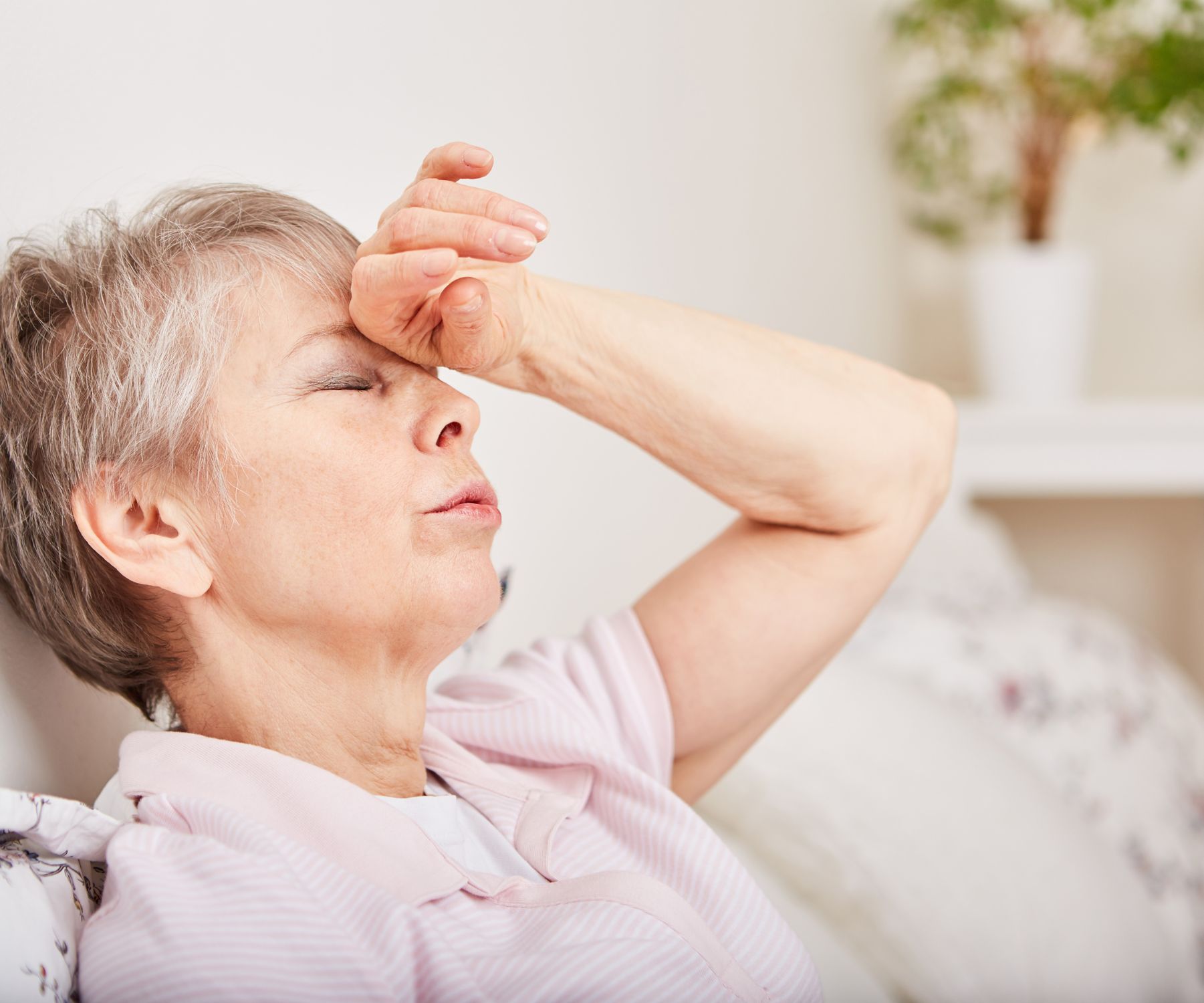Table of Contents
Do Air Purifiers Help Sinuses?
Air purifiers are especially helpful for allergy-related sinusitis. They can remove pet dander, pollen, and dust that aggravate allergies. This may reduce congestion, pressure, and other allergy symptoms like sneezing and postnasal drip.
Indoor air pollution is a major trigger for sinus problems. Dust mites, pet dander, mold spores, and chemicals can inflame the nasal passages and sinus cavities. An air purifier with a HEPA filter can capture many of these particles and allergens. This helps reduce irritation and inflammation.
Some models also have activated carbon filters to absorb gases like volatile organic compounds (VOCs). These chemicals can cause respiratory irritation and worsen sinus problems.
However, air purifiers have limitations. They mainly filter airborne particles. Bacteria and viruses can still be present on surfaces and spread through contact. And mold growing inside walls or HVAC systems will continue to release spores unless eliminated at the source.
Air purification also does nothing to address anatomical factors like narrowed sinus passages or a deviated septum. So for chronic or structural sinus issues, an air purifier alone will provide minimal relief.
Below are some scenarios where an air purifier can help sinus problems:
- Seasonal allergies – Removing pollen during spring and fall can lessen allergy symptoms like congestion and sinus pressure.
- Pet allergies – Reducing lingering pet dander can provide relief, especially when combined with keeping pets out of bedrooms.
- Chemical sensitivities – Absorbing VOCs from household cleaners, fragrances, and off-gassing furnishings can improve sinus irritation.
- Smoke irritation – Wildfire smoke, wood stoves, and tobacco smoke can all exacerbate sinus inflammation. An air purifier filters these particles for cleaner indoor air.
However, air purifiers may not be as helpful for:
- Chronic bacterial sinus infections – Bacteria can stick to surfaces and spread through contact. An air purifier won’t eliminate this root cause.
- Seasonal viruses – Purifiers remove airborne particles but not surface germs. So they are limited in ability to prevent spread of contagious illnesses like colds or flu.
- Structural issues – Anatomical problems like nasal polyps need medical treatment beyond just air filtration.
 What’s the Best Air Purifier for Sinuses?
What’s the Best Air Purifier for Sinuses?
Here are two top-rated air purifiers to consider:
| Purifier | Key Features |
|---|---|
| Coway AP-1512HH Mighty
|
|
| Winix 5500-2
|
|
When shopping for an air purifier to help your sinuses, look for a True HEPA filter. This will remove 99.97% of particles 0.3 microns or larger. Make sure the clean air delivery rate (CADR) fits the size of the room. Units with activated carbon provide extra protection against gases and odors. Some models even have UV light to kill germs.
Key Features to Consider
- Filter Types: The core of an air purifier’s functionality lies in its filters. True HEPA filters are essential for trapping fine particles like pollen, dust mites, and pet dander. Activated carbon filters complement this by absorbing odors and chemicals that can irritate the sinuses.
- Room Size Compatibility: Ensure the air purifier is capable of cleaning the air in the room where it will be used most frequently. This is typically measured in square footage.
- Noise Level: Since air purifiers are often used in living spaces and bedrooms, opt for a model that operates quietly to avoid disturbance, especially during sleep.
- Energy Efficiency: Look for models with an Energy Star rating to ensure the device doesn’t lead to excessive energy bills, especially when used continuously.
- Maintenance Requirements: Consider the lifespan of the air purifier’s filters and the cost and frequency of replacement to maintain optimal performance.
- Special Features: Some air purifiers come with additional features like UV-C light for killing germs or ionizers that help remove particles from the air, though the latter may produce ozone.
- Brand Reputation and Warranty: Choose a reputable brand with positive reviews and a strong warranty to ensure reliable performance and support over time.
| Feature | Importance for Sinus Relief | What to Look For |
|---|---|---|
| Filter Types | High | True HEPA, Activated Carbon |
| Room Size | High | CADR rating suitable for your room size |
| Noise Level | Moderate | Low dB rating for quiet operation |
| Energy Efficiency | Moderate | Energy Star certification |
| Maintenance | Moderate | Easily replaceable filters with long lifespan |
| Special Features | Low to Moderate | UV-C light, Ionizers (optional) |
| Brand & Warranty | Moderate | Reputable brand with strong warranty |
 Best Locations for Air Purifiers to Relieve Sinus Issues
Best Locations for Air Purifiers to Relieve Sinus Issues
1. Bedrooms:
- Why: We spend a significant portion of our day in bedrooms, making it crucial to maintain clean air in these spaces to prevent nighttime sinus irritation and congestion.
- Where: Place the air purifier on your nightstand or close to the bed, but not directly facing you. Ensure it’s not blocked by furniture for optimal air flow.
2. Living Rooms:
- Why: As common gathering areas, living rooms often contain a mix of allergens from outside, pets, and everyday activities.
- Where: Position the purifier near high-traffic areas but away from heavy electronics that could disrupt airflow. Near a doorway or a window can be effective, especially if these are closed most of the time.
3. Home Offices or Study Areas:
- Why: Concentration and comfort can be significantly affected by sinus issues. Keeping the air clean in workspaces is essential for productivity and well-being.
- Where: Place the purifier close to your desk but ensure it’s not directly in line with your breathing zone to avoid discomfort from direct air flow.
4. Near Allergy Triggers:
- Why: If specific areas in your home are known for higher allergen levels, such as pet zones, placing an air purifier nearby can target these allergens more effectively.
- Where: In rooms where pets spend a lot of time or near entryways where pollen and outdoor allergens might enter.
Additional Placement Tips
- Height Consideration: Air purifiers work best when positioned at breathing level, which can be achieved by placing them on a table or a stand in sitting areas.
- Avoid Corners and Obstructions: To maximize air intake and distribution, ensure the air purifier is not cornered or heavily obstructed by furniture.
- Multiple Units for Larger Homes: In larger or multi-story homes, consider having an air purifier in each key area or level to maintain consistent air quality throughout.
- Humidity Levels: If your sinus issues are aggravated by dry air, pairing an air purifier with a humidifier in the same room can provide additional relief, but ensure they are not placed too close to each other to prevent moisture from entering the purifier.
Maintenance for Optimal Performance
- Regular Filter Replacement: Follow the manufacturer’s guidelines for filter replacement to ensure the air purifier remains effective at trapping allergens and pollutants.
- Continuous Operation: Air purifiers are most effective when run continuously. Most modern purifiers are designed for energy efficiency, even when used 24/7.
- Routine Cleaning: Besides filter replacement, clean the exterior and air intake/outlet grilles of the purifier regularly to maintain optimal airflow and performance.
Frequently Asked Questions
Q: Can an air purifier help with sinus issues?
A: Yes, air purifiers can significantly reduce the presence of airborne allergens and irritants, such as pollen, dust mites, and pet dander, that contribute to sinus congestion and irritation. By cleaning the air, they can help alleviate symptoms associated with sinus problems.
Q: Is an air purifier or a humidifier better for sinus problems?
A: The choice between an air purifier and a humidifier depends on the specific cause of your sinus issues. Air purifiers are more effective at removing airborne allergens and pollutants that can irritate the sinuses. On the other hand, humidifiers add moisture to the air, which can soothe dry sinuses and alleviate congestion. For some, a combination of both may offer the best relief, especially in environments with dry air and high levels of indoor allergens.
Q: What particles do HEPA filters remove?
A: True HEPA filters are designed to capture at least 99.97% of particles that are 0.3 microns in diameter or larger. This includes a wide range of allergens and irritants, such as dust, pollen, mold spores, pet dander, and some bacteria and viruses, all of which can contribute to sinus issues.
Q: How often should I replace the filters in my air purifier?
A: The frequency of filter replacement can vary depending on the air purifier model and usage. Generally, HEPA filters should be replaced every 6 to 12 months, while activated carbon filters may need to be replaced every 3 to 6 months. Always refer to the manufacturer’s recommendations for your specific model.
Q: Can air purifiers remove odors that irritate the sinuses?
A: Yes, air purifiers equipped with activated carbon filters are effective at absorbing odors, as well as gases and VOCs (Volatile Organic Compounds), that can irritate the sinuses. This includes odors from cooking, tobacco smoke, pets, and chemicals from cleaning products and paints.
Q: Are air purifiers helpful for people with pet allergies?
A: Absolutely. Air purifiers with HEPA filters can effectively reduce the amount of pet dander in the air, which is a common allergen for many people. This can provide significant relief for individuals with pet allergies and help reduce sinus irritation associated with these allergies.
Q: Can air purifiers completely cure my sinusitis?
A: While air purifiers can significantly reduce allergens and irritants that contribute to sinus discomfort, they are not a cure for sinusitis. Sinusitis can be caused by infections, structural issues in the nasal passages, or other factors that may not be addressed by purifying the air. Air purifiers should be seen as a complementary measure to medical treatment, not a standalone cure.
Q: Do I still need to use allergy medication if I have an air purifier?
A: It depends on the individual and the severity of their allergies. An air purifier can reduce the need for medication by removing allergens from the air, but it may not eliminate the need entirely. Some individuals may find that they still require medication, especially during peak allergy seasons or in particularly polluted environments.




 Best Locations for Air Purifiers to Relieve Sinus Issues
Best Locations for Air Purifiers to Relieve Sinus Issues